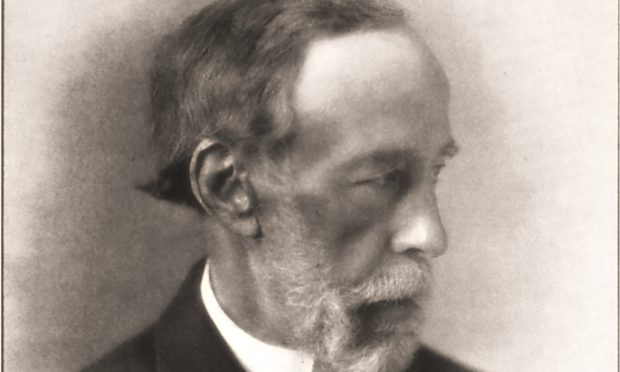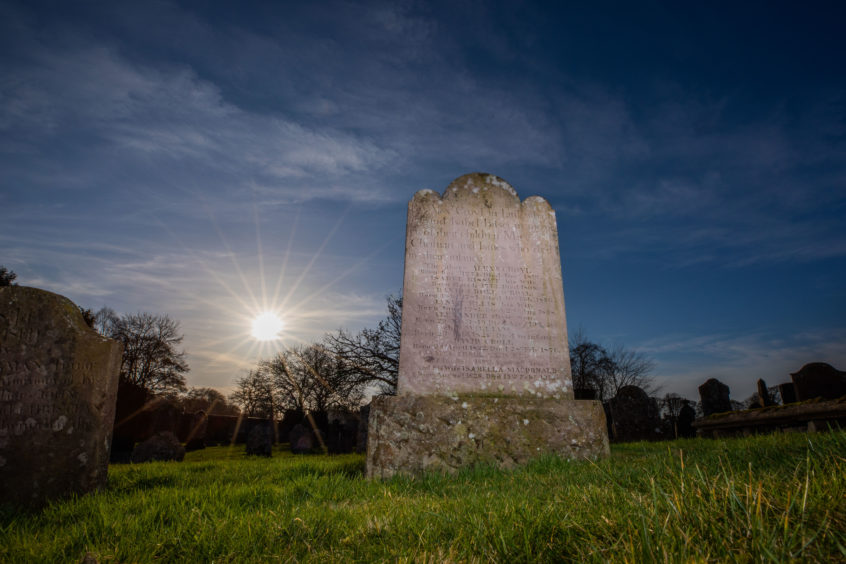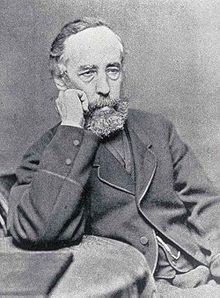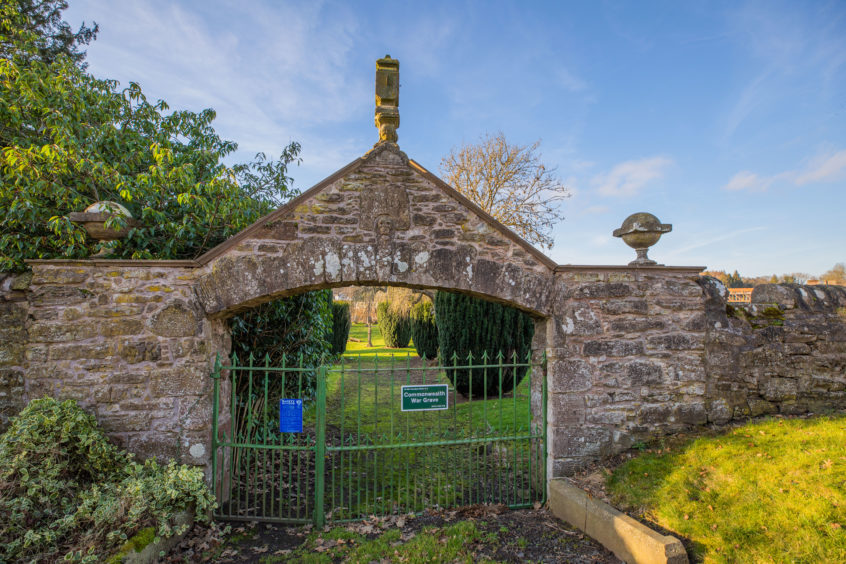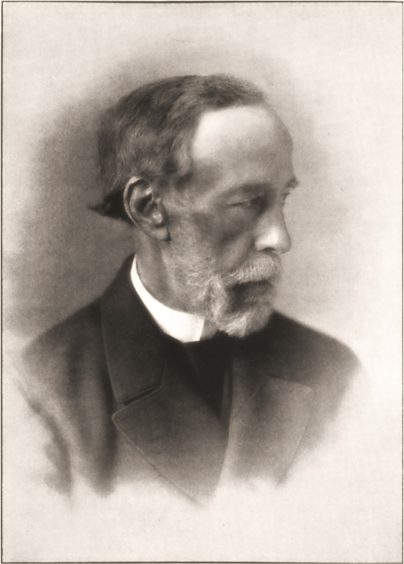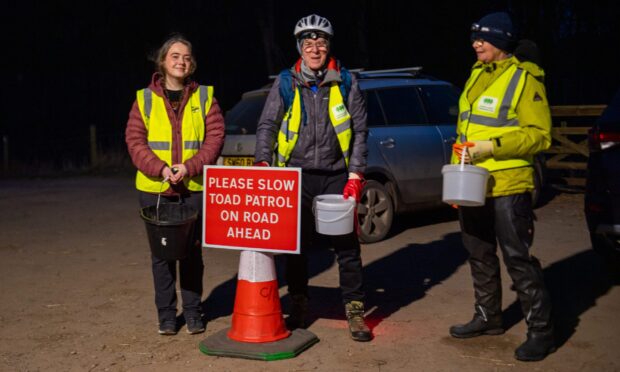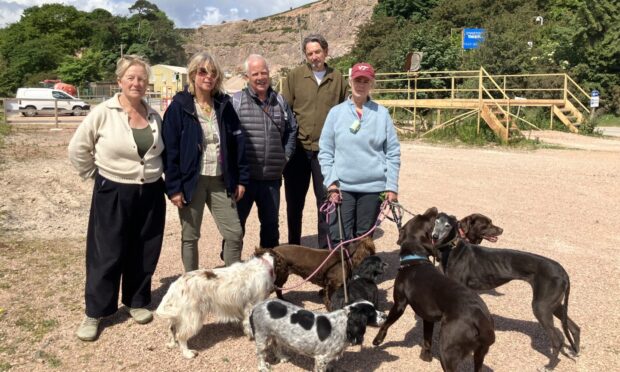In the quiet churchyard at Cargill, sitting along the banks of the River Tay, lies the grave of a forgotten Perthshire crofter who became one of the pioneering climate scientists and thinkers of his time.
Born into poverty in 1821 in the hamlet of Little Whitefield, about five miles north of Perth, James Croll went on to trade scientific theories with Charles Darwin and published the critical work Climate & Time, exploring the cause and effects of long-term climate change.
As the 200th anniversary of his birth approaches, few remember the simple Perthshire crofter who defied all expectation to become a renowned scientist through his own genius.
Mike Robinson, chief executive of the Royal Scottish Geographical Society (RSGS), has been at the forefront of trying to bring Croll back into public recognition.
“The thing that was unusual about Croll was that he came from a very poor background
“A lot of scientists of that age were from landed gentry, wealthy families, almost hobbyists, who had the time and capacity and money to explore their intellect.
“Croll absolutely wasn’t like that. He came from a very poor background and had no real advantages in life you could point at.
“He was partially disabled and his only surviving brother was hunchback.
“He just had everything against him yet he managed to still find the time energy and enthusiasm (to create his work).
“The other thing was that he was virtually self taught, he could’t afford to go to university or school and had to work as a young kid.”
When he was three-years-old, Croll’s family were cleared from their croft by landowner Lord Willoughby and forced to move to a derelict bog, which would later become the village of Wolfhill.
Afflicted with a severe pain in his head, Croll refused to attend school and was taught at home by his elder brother Alexander until he died, aged 10.
From the age of 9, Croll was forced to attend school in Guildtown where, by his own admission, he was a below average student. By 13, he had left school again to help manage the family croft.
The young teenager happened upon a monthly publication – Penny Magazine of the Society for the Diffusion of Useful Knowledge – and suddenly his interest and intellect was piqued.
He left home briefly but returned to Wolfhill aged 22 and to school to learn algebra.
In a quest for regular employment, he helped build the Kirk at Kinrossie (now the village hall) and was a coffee merchant in Perth, during which time, in Elgin, he met his wife to-be, Isabella MacDonald, with whom he set up an ill-fated Temperance Hotel in Blairgowrie.
Following the failure of his business he worked as salesman in Dundee, Edinburgh and Leicester before getting a life-changing break at the age of 38 when he became janitor at the Anderson College in Glasgo.
Surrounded by scientific texts Croll immersed himself in academic discussions and with his younger brother David taking over the majority of the janitorial work, he started to develop his own theories.
In 1864, based solely on his own thinking and research, Croll wrote a critical paper for the Philosophical Magazine – On the Physical Cause of the Change of Climate During Glacial Epochs – based on the eccentricity of the earth’s orbit and its effect on the ice ages.
He proposed there were several ice ages brought about in part by changes in the Earth’s orbit round the sun, the tilt of the planet in relation during different seasons and the “wobble” of the magnetic poles.
Croll began arguing his points and corresponding by letter with some of the greatest minds of his time, including Charles Darwin and Lord Kelvin.
Darwin credited Croll’s explanation of multiple ice ages as fundamental to his own work on Origins of Species.
In 1875 Croll published his most critical work, the distillation of his theory of ice ages and earth’s orbit, called Climate & Time.
The book comprised 31 chapters which tackled aspects of his astronomical theory of long-term climate change, particularly exploring the cause, behaviour and climatic effect of ocean currents.
Global recognition followed and he was made a fellow of the RSGS, an honorary member of the New York Academy of Sciences and was awarded an honorary degree by the St Andrews University.
Forced to retire early, at the age of 59, due to ill health Croll missed out on a pension despite the insistence of powerful friends who appealed to the government.
With a small gift from the RSGS, he moved into a small house at 5 Pitcullen Crescent in Perth. He died on December 15 1890 shortly after the publication of his last book, The Philosophical Basis of Evolution and his life and work gradually faded into obscurity.
Mike said: “He’s a scientist that deserves more recognition for a lot of critical thinking and he should be better known – especially in his home town.”
Mike will present a talk on James Croll at Perth Theatre on March 14 at 11am, dramatised by the Perthshire Playwrights.
